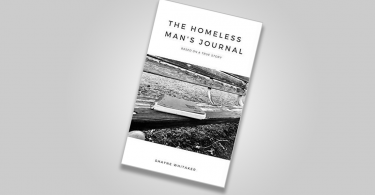“Room is a book to read in one sitting. When it’s over, you look up: the world looks the same but you are somehow different and that feeling lingers for days” – Audrey Niffenegger
Emma Donoghue has been a relatively understated author until the publication of Room in 2010, a novel which has not only challenged Donoghue herself, as she successfully creates the protagonist of the novel – the voice of a 5-year-old boy who has only ever seen the confinements of “Room” – but the reader’s perception of how a young child sees the world is also challenged. Room is loosely sparked by the real life Fritzl case, with a father who locked his daughter in a basement for 24 years and raped her repeatedly, fathering seven of her children, but as a Guardian article recounts, Emma Donoghue makes clear that it only “triggered” an idea that became the novel. The story she paints does not intend to be shocking or deeply sinister, but instead desires to showcase the difficulties and strengths of a mother who wants to show her child that life is there to be discovered, not through the eyes of someone else, but of your own.
To tell you the plot as a mere beginning, middle and end would be an injustice to what Donoghue is trying to achieve, because there are feelings and thoughts expressed within the novel that any person can relate to but need to access by reading the words on the page. For example, the character of “Ma” could be anyone’s “Ma”: she gets frustrated, exhausted, lonely, and thoughtful and loves her child, she is not a black and white character, and the way in which Donoghue writes her makes you forget that she is not your “Ma”. In a similar way, Jack could be your brother or son: he can frustrate you without intending to, and the balance between patience and frustration is a one that the character of Ma strikes perfectly with a kind of imperfectness that can only be described as genuine. But one cannot forget the circumstances they are in, they are prisoners in a prison that Jack’s innocence cannot recognise because he has become so accustomed to it to know any better, which is where Ma’s conscience becomes tangled.
Like any hero Ma has a plan, a plan which like in any great hero’s story has weaknesses but ultimately is for the greater good, this being Jack’s future and her sanity. Despite the success, the plan is executed to perfection only halfway through the book, leaving another 200 or so pages to show the happily ever after. But life does not work that way, and so neither does this book. Donoghue revels in emotional highs, with the characters surviving their ordeal and making it out of the trapping four walls – which represent contrasting ideas to the two protagonists, but the damage could not just be left there. The physical and emotional scars need time to heal reflecting the massive chunk of the book that details with this: young Jack needs to learn how to be a little boy, and Ma needs to remember how to be a young woman.
Both need to go on a ‘metaphorical journey’ to ‘discover themselves’ as the clique goes, but by reading this book that challenges the status quo, you will ‘hold their hand’ throughout this journey.








